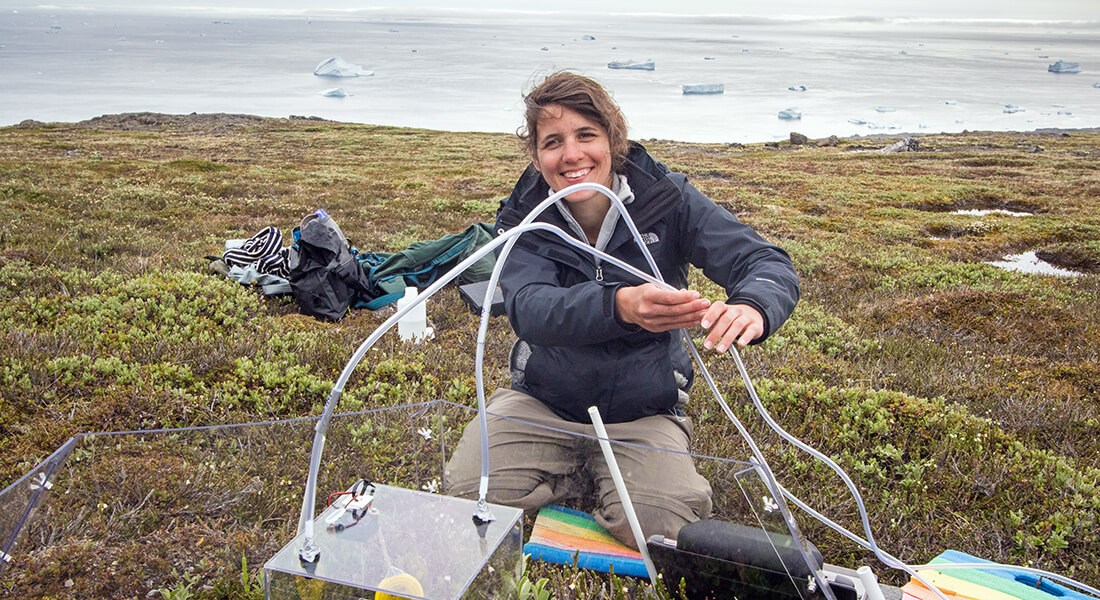PhD defense Lena Hermesdorf
The thesis addresses the effects of increased summer warming, deepened snow, and fire individually and (in part) in combination on the C dynamics in arctic tundra ecosystems. The work was based on field experiments and included short- and long-term effects on CO2 fluxes and long-term effects on C pools following summer warming and snow addition. GHG flux measurements were also used to investigate the immediate and short-term effects of experimental fire on the GHG balance in a tundra ecosystem in ambient and under warmer conditions.

Lena concluded that a well-drained tundra ecosystem is sensitive to warming and can led to increased aboveground biomass and a gain in soil C pools due to increased photosynthesis in the long-term. But also that the combination of snow addition and summer warming can turn the ecosystem into a net summer CO2 source.
The experimental fire turned the tundra ecosystem immediately into significant net CO2 sources for at least two years following the fire. Altogether, the thesis highlights the complex heterogeneous responses of a well-drained tundra ecosystem caused by different aspects of climate change as well as the importance of multiyear long-term studies.
The studies of Lena PhD thesis were performed near Arctic Station in a typically tundra vegetation in West Greenland.
Lena was supervised by Bo Elberling, and has been part of CENPERM.
Congratulations and good luck to Lena!
